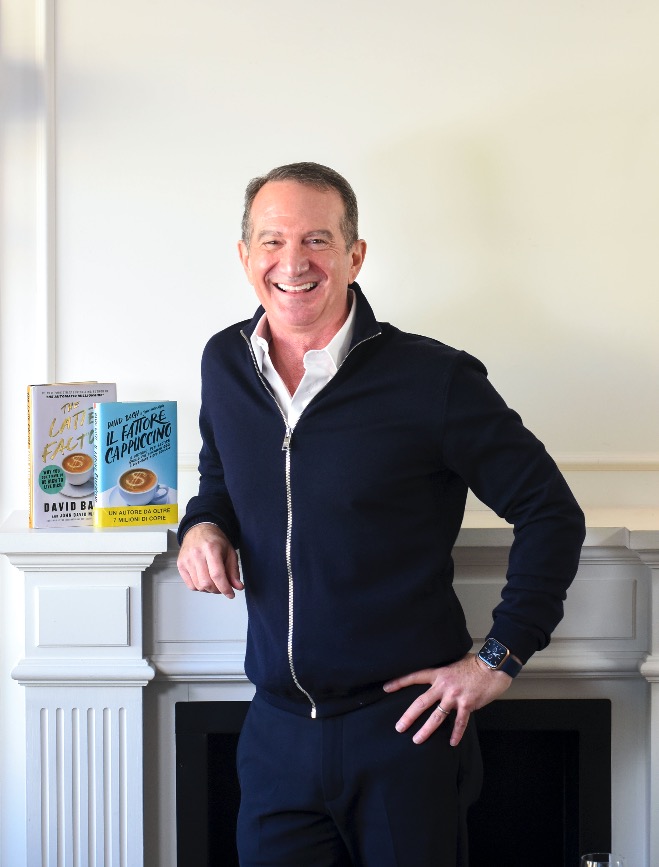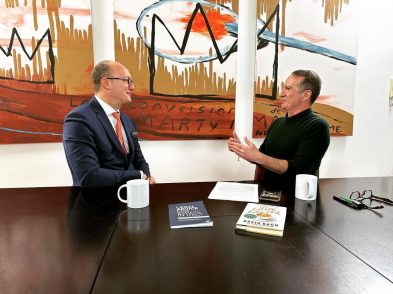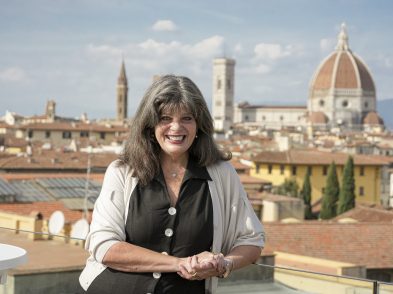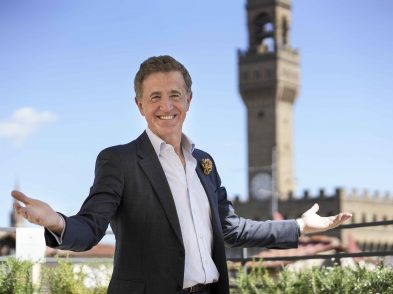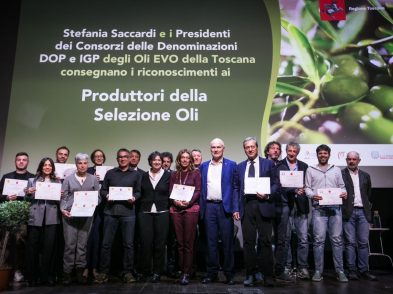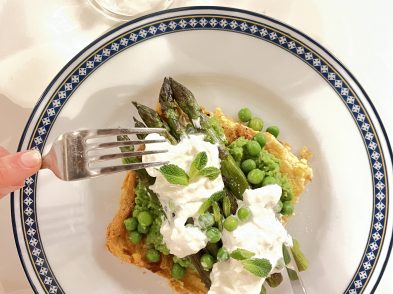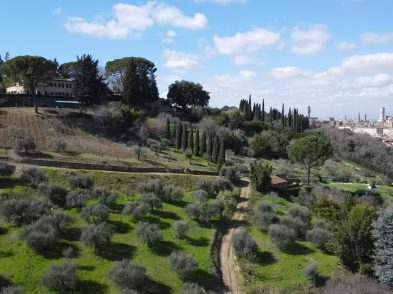Financial expert and ten times New York Times bestselling author David Bach interviews the president of Ruffino, Sandro Sartor, focusing on reconciling identity and innovation for this top Tuscan wine company. The conversation took place at Ruffino’s flagship Poggio Casciano estate, a hospitality hub just outside Florence.
David Bach: I have to tell you a story. 25 years ago, I first drank your wine, your famous Chianti Classico, in Positano. I remember like it was yesterday, asking the restaurant if I could take the bottle home with me because it was such a special experience. So, to be here with you now at your winery is a thrill. Could you start by telling us about the history of Ruffino and how it has become such a huge global leading brand in the competitive wine business?
Sandro Sartor: Thank you for sharing that experience. Ruffino was established in 1877 and, at that time, the wine business was not the same business we see today. Our company was very unique, which is something I think we take for granted in the business today. Back then, it was the nobility that produced wine for their special guests or just to sell. The cousins, Ilario and Leopoldo Ruffino, created “ideal wine”—they called it this because it had the ability to be exported and transported long distances rather than just locally. It started with the railway right next to the winery and the Chianti that was being produced was almost immediately being exported abroad, particularly to the US. During that period, there were a lot of Italian immigrants in the US, so for them the Chianti Ruffino was probably the only link to their home country. They couldn’t rely on mozzarella and fresh pasta because they couldn’t be exported. That’s why this business was established to be global from the very beginning and to be perceived not only as Tuscan wine, but as something from Italy that’s able to travel abroad and be the connection point for any Italian immigrants who were living overseas at the time.
David: What’s interesting is that when people first experience Italy before they actually come to Italy, it’s food and wine. It’s Italian food and Chianti wine. That’s what brings us here—it’s like the soul! You produced 30 million bottles of wine last year, which makes you one of the largest wineries in the world, distributed in 84 countries. Since Covid, I’m assuming business has gone up since people are drinking more wine in their homes. How has Covid impacted the wine business?
Sandro: That’s a good point. It actually depends on the balance between home consumption and out of home consumption. In some countries, our wine is predominantly consumed outside of home (in restaurants and wine bars etc.), which of course have been hit hard by the pandemic. However, in other countries, we have a stronger home consumption market with grocery stores, monopolies and so on. Business went up on those markets.
David: Constellation Brands bought Ruffino in 2011, right? Obviously it’s grown a lot since then. What is it like balancing an Italian brand owned by an American company?
Sandro: That was one of my concerns when I was recruited because at first it wasn’t obvious in which direction the management could be handled, but I have to say it went really well for a couple of reasons. One, because we are an Italian brand and that’s why we’re successful. The marketeers in the US don’t want to affect or destroy the authenticity of our brand because it would harm the equity of our business. It was important since the very beginning that the ownership and the direction of the brand should be continued to be led by Italy and by Italians. Two, managing a business in Italy is so complex that everyone just gives up. They say, OK, I don’t understand, but we trust you, Sandro, you do it, and that’s okay for us. Particularly in the wine business, the regulation of the sector is so complicated that they just trust us and let us get on with it!
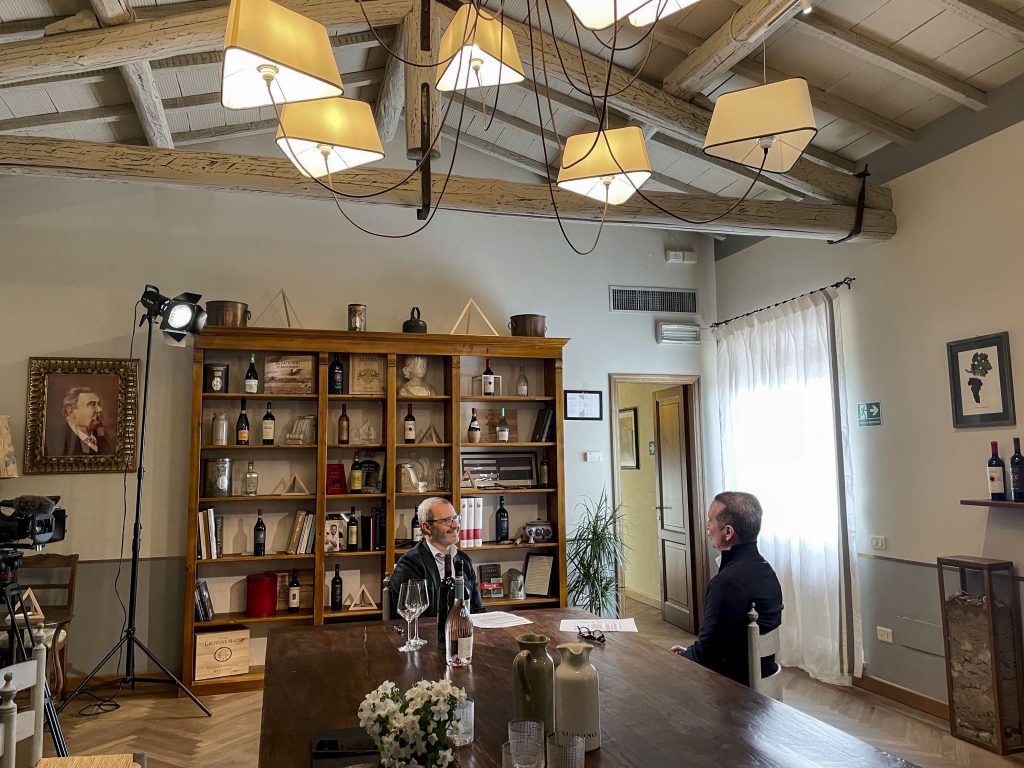
David: I read that you were producing roughly 18 million bottles of wine a year when Constellation Brands bought you…
Sandro: Yes, even less I think. It was more like 16 million.
David: So, you’ve doubled because now you’re doing 30 million bottles. Let’s talk about this location because I don’t think everybody realizes how close you are to Florence. When people come to visit Florence for two or three days, they really get the real Tuscan experience by coming to your winery. But you’re more than just a winery. Tell me about what you’ve created here at Poggio Casciano because it’s a true destination experience.
Sandro: As a brand, we want to be one of the reference points for Vivere di Gusto, so that people leave here with a full taste of living. We want to create an experience for the consumer on what this motto means to Ruffino. Poggio Casciano is the perfect place to have this “Flavours of Life” experience of Ruffino wines. It’s so close to our identity and so unique that we transformed it into an experience center for our brand and created the restaurant, Locanda Le Tre Rane. We opened just before Covid hit, so, in a way, it was a good trial for us because it gave us lots of experience and inspiration, such as experiential marketing, where we put out ad after ad on social media to communicate with potential consumers. The way you express yourself is the best marketing tool you can have.
David: You’ve got this beautiful boutique hotel, an incredible restaurant, this amazing winery where you’re able to see the vineyards but also the cellars, a gorgeous gift store—this is an obvious location for people to come and have weddings, retreats and birthday parties. If somebody wants to learn more, where should they go?
Sandro: We’re on social media, so they can find us on Instagram or on Facebook. They can also call us and tell us exactly what they’re looking for and we can accommodate different needs. As you said, it could be events or maybe a family reunion where people need a place to stay together. Ruffino loves bringing people together. Togetherness has always been important to us. The great thing about our brand is that we promote inclusion; we are not a brand for the elite. We wanted to create a place here that was inclusive for everyone, meaning a group of people or friends can come here and share an experience, whether it’s at the hotel we call an agriresort or whether it’s in the wine bar or restaurant.
David: You have so many types of wine. Aside from the Chianti that so many Americans know you for, what other wines should people be tasting when they come to check out Ruffino?
Sandro: Staying in Tuscany, we have extended our portfolio with a Supertuscan, which is a wine produced with a blend of international varietals, but in a style that is slightly different from the traditional DOCG wines. There’s also an elegant rosé that’s produced along the Maremma coast at a very high temperature. Then there is our Chianti Classico, of course, which is of the highest quality. We have recently launched Modus Primo, which is a more premium and luxury wine being produced here in Poggio Casciano. We also introduced our Prosecco a few years ago because in the export market in the US, we are not only a Tuscan wine, we are an international Italian brand. What we saw when we launched the Prosecco was that it was very credible for us to have it in our range as well as Pinot Grigio. They’re both doing extremely well.
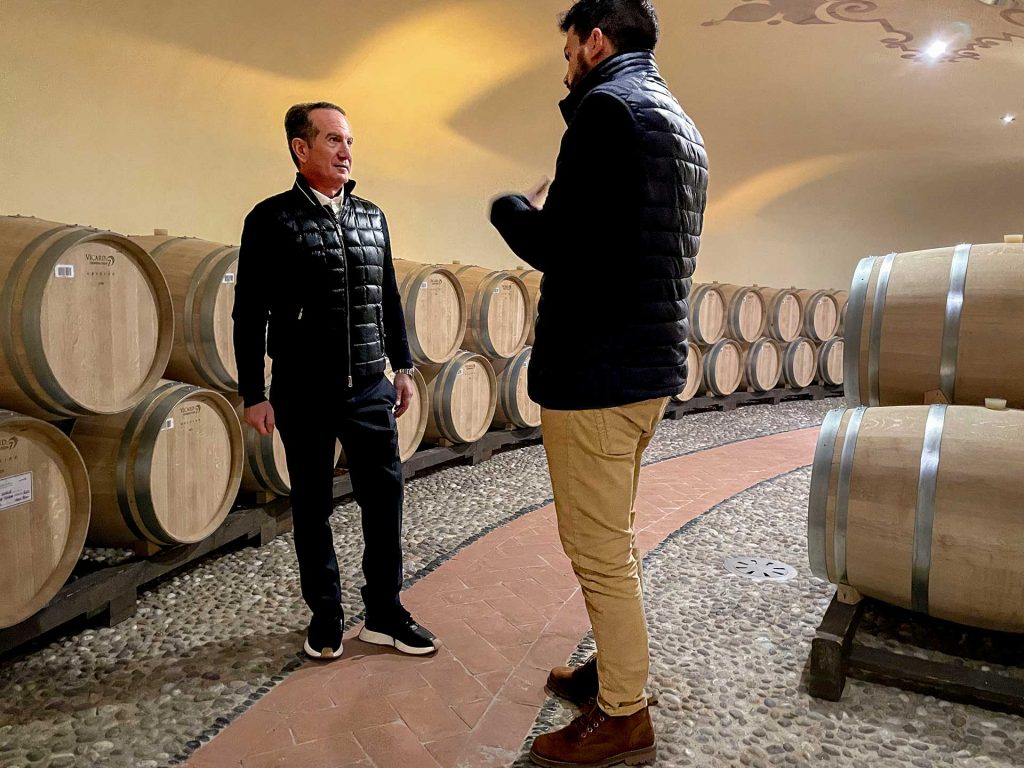
David: What’s next for Ruffino? Where is this business heading in the next two or three years?
Sandro: That’s a great question. Innovation is not only achieved by creating new wine. A few years back, we realized that we were ready to embrace a new step in our sustainability process. Our company has always been very respectful of the land where we operate, but now we’re in the process of transforming all of our vineyards to organic. It takes three years to become officially organic. Some of our estates have already completed this period, for example, here at Poggio Casciano and in the Prosecco area. Others are still in the transition phase. By 2025, we hope to be 100% organic as a company. This is innovation because our consumers are sensitive to the respect we have for the land and the environment, which is not only being organic, but also a full range of other biodiversity issues, such as being sustainable in terms of social and economic sustainability.
David: What exactly does it mean to be organic? What happens in three years for a winery to do that?
Sandro: It’s not that the wine becomes better in terms of quality. I don’t want to pretend that you’ll taste the wine and think, Ah yes, this tastes organic. Organic is how you work in the vineyard in order to protect the earth and the grape. By having that approach, you basically take out all the chemical products involved.
David: Does that put you ahead of the curve? If you’re producing 30 million bottles and the fact that you will be fully organic by 2025, is the wine industry noticing that you’re making this change?
Sandro: Not yet. It takes a long time to be noticed. You cannot change your company overnight. This is a transition that takes time. Unless you start doing this at an appropriate time, you might discover that you’re too late. But yes, I believe we are definitely ahead of the curve and other producers know that we are in the transition phase. We understand sustainability, which is something that consumers are becoming more and more aware of, particularly the younger generation.
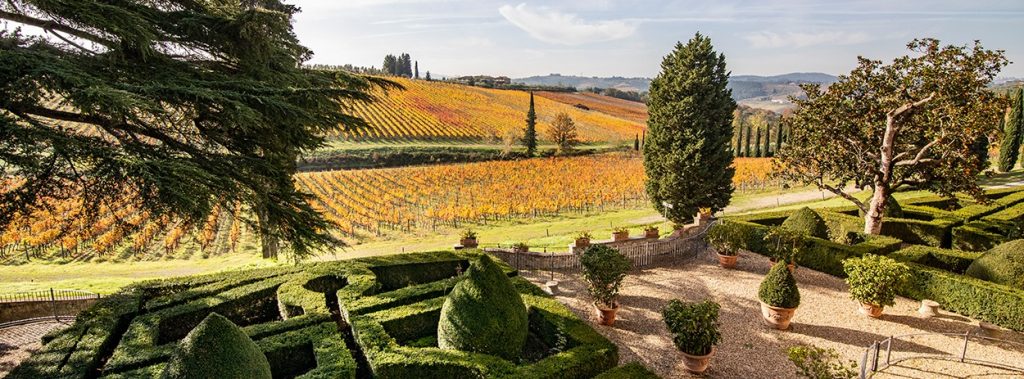
David: Is there anything else that everyone should know about Ruffino?
Sandro: It’s important for us to stress the difference between our identity and tradition. Given that we have a long history, the question I receive the most is, how do we handle innovation for a company that has such a long tradition in the market? In reality, the DNA of this company has always been to be a pioneer and to be innovative. My point is, when you make successful innovation, that innovation becomes a tradition one day. When we started to produce our Chianti for the world, it was a great innovation at the time. Then we started to age the Chianti to produce what we call today the Chianti Riserva Gran Selezione. Then in the 1950s, we started to produce Rosatello at a time when no one was producing rosé. We have always been pioneers and have always been innovating. Our innovation has become tradition, and even though many others know what we are doing in terms of wine, our DNA is to continue opening new doors.
Find out more about Ruffino’s visitor experience and read the Vivere di Gusto magazine.
Find out more about David Bach.
